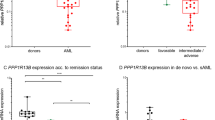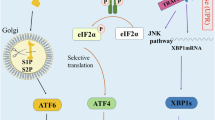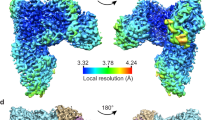Abstract
PPP1R13L was initially identified as a protein that binds to the NF-[kappa]B subunit p65/RelA and inhibits its transcriptional activity. It also binds p53 and inhibits its action. One set of experimental findings based on over-expression of PPP1R13L indicates that PPP1R13L blocks apoptosis. Another set of experiments, based on endogenous production of PPP1R13L, suggests that the protein may sometimes be pro-apoptotic. We have used primary mouse embryonic fibroblasts (MEFs), dually transformed by H-ras and Adenovirus E1A and differing in their p53 status, to explore the effects of PPP1R13L over-expression, thus examining the ability of PPP1R13L to act as an oncoprotein. We found that over-expression of PPP1R13L strongly accelerated tumor formation by ras/E1A and also resulted in an increased metastatic potential of the tumors. PPP1R13L over-expressing cells were depleted for both p53 and active p65/RelA and we found that both p53 dependent and independent apoptosis pathways were regulated by PPP1R13L. Finally, studies with the proteasome inhibitor MG132 revealed that over-expression of PPP1R13L causes faster p53 degradation, a likely explanation for the depletion of p53. Taken together, our results show that increased levels of PPP1R13L can increase tumorigenesis and furthermore pinpoint PPP1R13L as a gene that influences metastasis.
Similar content being viewed by others
Article PDF
Author information
Authors and Affiliations
Rights and permissions
About this article
Cite this article
Laska, M., Lowe, S., Zender, L. et al. Enforced expression of PPP1R13L increases tumorigenesis and invasion through p53-dependent and p53-independent mechanisms.. Nat Prec (2008). https://doi.org/10.1038/npre.2008.2004.1
Received:
Accepted:
Published:
DOI: https://doi.org/10.1038/npre.2008.2004.1



